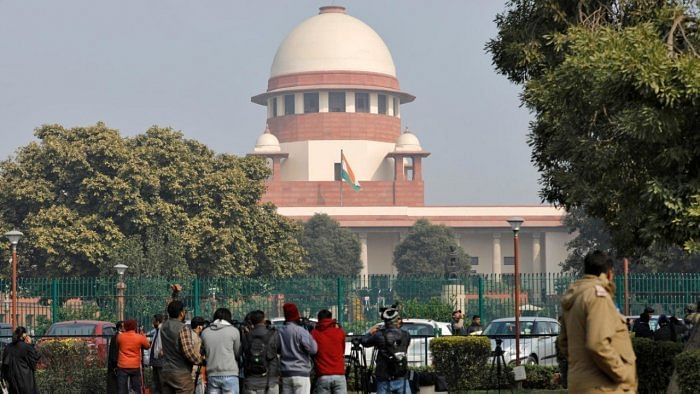
Insurance companies are refusing claims in many cases on “flimsy grounds”, the Supreme Court Friday said while observing that they should not be too technical while settling the claims and ask for documents that the insured is not in a position to produce due to circumstances beyond his control.
The apex court observed while allowing an appeal against the August last year order of the National Consumer Disputes Redressal Commission (NCDRC) in a matter pertaining to the settlement of a claim under the insurance policy for a truck that was stolen in 2013.
A bench of Justices M R Shah and B V Nagarathna said that the appellant, who was the owner of the truck, was wrongly denied the insurance claim and the insurance company had become “too technical” while settling the claim and had acted “arbitrarily.”
“Therefore, in the facts and circumstance of the case, when the appellant had produced the photocopy of the certificate of registration and the registration particulars as provided by the RTO, solely on the ground that the original certificate of registration (which has been stolen) is not produced, non-settlement of claim can be said to be a deficiency in service,” the bench said in its judgement.
It noted that the insurance claim was not settled mainly on the ground that the appellant had not produced either the original certificate of registration or even the duplicate certified copy of the certificate of registration issued by the RTO.
It said the appellant was asked to furnish documents that were beyond his control to procure and furnish.
The bench observed that once there was valid insurance and the truck was stolen, the insurance company ought not to have become too technical and refuse to settle the claim on non-submission of the duplicate certified copy of the certificate of registration, which the appellant could not produce due to the circumstances beyond his control.
“In many cases, it is found that the insurance companies are refusing the claim on flimsy grounds and/or technical grounds. While settling the claims, the insurance company should not be too technical and ask for the documents, which the insured is not in a position to produce due to circumstances beyond his control,” it said.
The top court set aside the order passed by the district consumer disputes redressal commission at Durg in Chhattisgarh dismissing the complaint filed by the appellant as well as the orders passed by the state commission and the NCDRC confirming the same.
The bench said the appellant is entitled to the insurance amount of Rs 12 lakhs along with interest at 7 per cent from the date of submitting the claim.
“The respondent – the insurance company is also saddled with the liability to pay the litigation cost, which is quantified at Rs 25,000 to be paid to the appellant herein,” it said.
The top court noted that the truck was insured for the period from August 22, 2012, to August 21, 2013, and in March 2013, it was stolen after which an FIR was registered and the complainant had also informed the insurance company as well as the RTO regarding the theft.
It noted that the appellant had submitted all the documents as sought by the insurance company but the firm failed to settle the claim.
Aggrieved by the delay in settling the claim, the appellant had approached the district consumer disputes redressal commission which disposed of the complaint with a direction that he would furnish a duplicate certified copy of the certificate of registration of the truck to the insurance company within a month and the firm would then settle the claim as per the terms and conditions of the insurance policy.
The appellant said that he had submitted an application before the RTO for obtaining a duplicate certified copy of the certificate of registration of the truck but the RTO denied to issue the same on the ground that due to the report of theft, the details regarding registration certificate on the computer has been locked.
The apex court noted that thereafter, the appellant had submitted an application before the insurance company along with a photocopy of the certificate of registration and registration particulars, as provided by the RTO, but despite that, the claim was not settled.
He then filed a fresh consumer complaint before the district consumer disputes redressal commission, which dismissed it by observing that as he had not filed the relevant documents for settlement of the claim, therefore, the non-settlement of the claim cannot be said to be a deficiency in service.